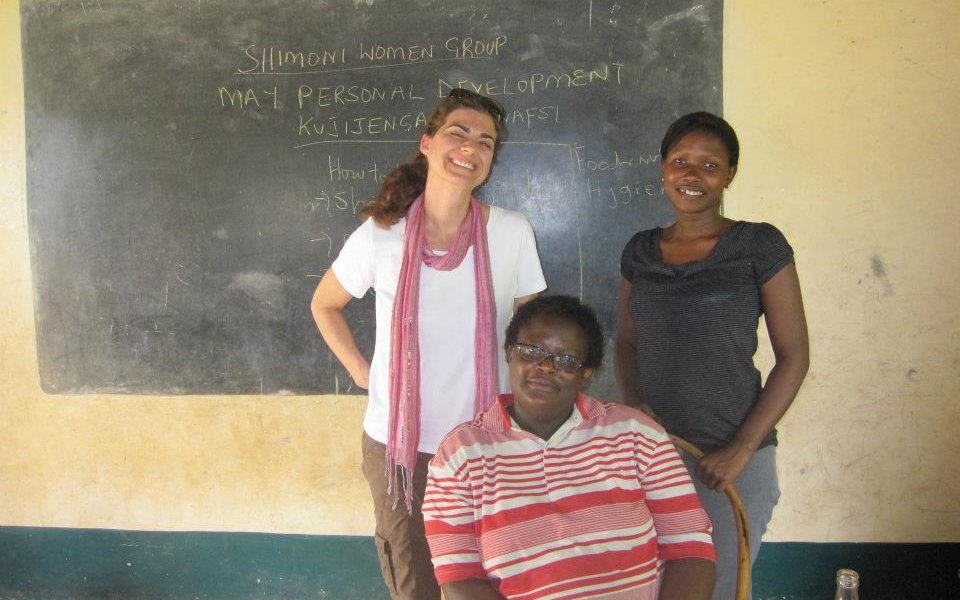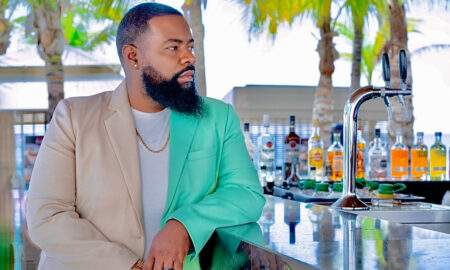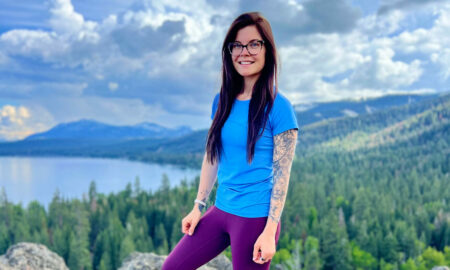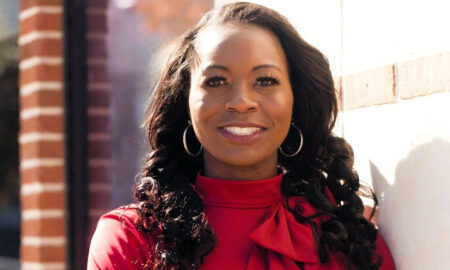

Today we’d like to introduce you to Nicole Minor.
Nicole, please share your story with us. How did you get to where you are today?
My journey has certainly not been a straight path. It has included a lot of turns, some intentional and some much unexpected. Throughout my childhood, I remember being imbued with a desire to learn about other countries and other cultures. As I entered college and gained friends of different nationalities and religions, many of whom are still my friends today, I was increasingly eager to understand the world. Unlike many young women around the world, I was lucky because my choices in friends, schools, professions and lifestyles were never defined for me by parents or social pressures. When I projected what I might do after college graduation, I thought I might enter international development due to my interests. Yet, I had no specific idea what that might entail.
But at age twenty-one and still in college, I began to experience double vision. When the condition continued, I went to a doctor and was stunned to learn I had a brain tumor. Worries or struggles that had seemed important faded and I was left with the raw fear of not being here anymore. Family and friends, love and connection were all that mattered. Faced with my mortality at that early age, I was able to see clearly how valuable and also uncertain my time was. I underwent surgery and very fortunately recovered with no serious negative side-effects. I had been granted more days to discover what I might best contribute to the world.
For more than a decade after this wakeup call, I explored different passions and career paths. I attended graduate school and later undertook strategic planning and market research positions in the United States, Europe and Brazil. In 2001 while I was working with a start-up non-profit organization in Sao Paolo, Brazil, I read the book, BANKER TO THE POOR, by Bangladeshi Doctor of Economics Muhammed Yunus. His concept of micro-lending to severely impoverished women struck me as not only revolutionary, but also practical. It centered on the idea that by providing small funds, in many cases to an impoverished but entrepreneurial woman, you can help alleviate poverty and uplift entire communities. Improving a woman’s life meant improving her family’s. Improving her family’s meant improving her community’s.
This was a simple but powerful concept. And to me, it also appeared as the most effective and sustainable. For an ambitious girl like me with no great wealth, but a lot of energy and passion, this idea seemed like a great starting point for research and learning.
With a more concrete mission, I began meeting with others in the United States who were already involved in poverty reduction work. One contact lead to another, one idea to another and in 2005, I decided to start a non-profit organization and filed the paperwork to establish The Pangea Network headquartered in The Woodlands, Texas. Since then, our non-profit has developed several educational, skill building and income-generating programs for women and youth in Kenya and here in Texas. These programs build on the women’s natural and cultural traditions, with the intention to increase their standard of living, their individual health, that of their family and to improve the community in which they live.
Overall, has it been relatively smooth? If not, what were some of the struggles along the way?
It has definitely not been a smooth road but I tend to believe that it is through the struggles that we learn the most. In starting and running The Pangea Network for the past 12+ years, I have been outside of my comfort zone more often than not. I have found myself in many new and often uncomfortable situations, whether it is being asked to speak on a panel or presenting to a group of individuals and fundraising. It has been a lot of great learning, staying open to the discomfort and challenges and taking it all in stride.
The Pangea Network – what should we know? What do you guys do best? What sets you apart from the competition?
The Pangea Network is an international non-profit dedicated to empowering motivated individuals in Kenya and the United States with the knowledge, skills and an ongoing network of support in order to achieve their dreams and make positive, life-changing contributions in the communities where they live.
Two main programs we would like to highlight are our Kenyan Women’s Network and our Young Women’s Leadership Challenge (YWLC) here in Texas.
Our Kenyan Women’s Network program’s goal is the social and economic empowerment of women living in extreme poverty in Kenya. This is achieved through education and training in core topics including leadership, human rights, basic business skills and more. After the trainings, Pangea provides revolving funds to help these women grow small businesses and increase income levels. Over the past twelve years, more than 1,000 Kenyan women were trained through our programs, 488 small enterprises were created, average weekly income for participants rose by 31% from 2015 to 2016 and 62% of women reported to be their family’s main source of income.
Our Texas based Young Women’s Leadership Challenge (YWLC) program works to empower high school-aged girls to become confident leaders, social entrepreneurs and well-rounded globally minded individuals. The year long program starts with a 6-day conference. Each day of the conference there are guest expert speakers, interactive team-building activities, and time creating their own Take Action Challenge (TAC). The TAC is what each young woman will be implementing over the next school year and will enable her to use leadership and critical thinking skills to experience first-hand in a real world setting what it means to start a social impact project with a vision, a goal, as well as fundraising, marketing, and communication. We just completed our YWLC Houston conference and successfully introduced YWLC to young women in Austin and Dallas this summer. Our alumni network consists of over 160 young women in Texas.
What is “success” or “successful” for you?
Success can mean a lot of things and at Pangea, what matters to us is being the most responsible stewards of your precious support and that means achieving actual impact through our programs in people’s lives. We provide the skills and resources for them to change their lives … that is our model and one that we feel proud of and see as sustainable development.
What matters is that Jennifer, living in western Kenya, was able to start a business selling grains after receiving training, pay back all of her revolving funds on time and with her new income send six children to school and support one in college. That is success! When a young high school student in Houston participates in our Young Women’s leadership program and explains that now she can see herself going to college, being the first female in her family to do so, and can make a difference in the world, that is Pangea’s kind of success.
At The Pangea Network, the women and youth we partner with are our priority and we remind ourselves every day that they are why we exist. Not the other way around. I am so proud of our collective progress and successes in changing lives through new opportunity.
Contact Info:
- Website: www.thepangeanetwork.org
- Phone: 281-292-1211
- Email: nicole@thepangeanetwork.org
- Instagram: @pangea4change
- Facebook: www.facebook.com/thepangeanetwork
- Twitter: @pangea4change




Getting in touch: VoyageHouston is built on recommendations from the community; it’s how we uncover hidden gems, so if you know someone who deserves recognition please let us know here.

















